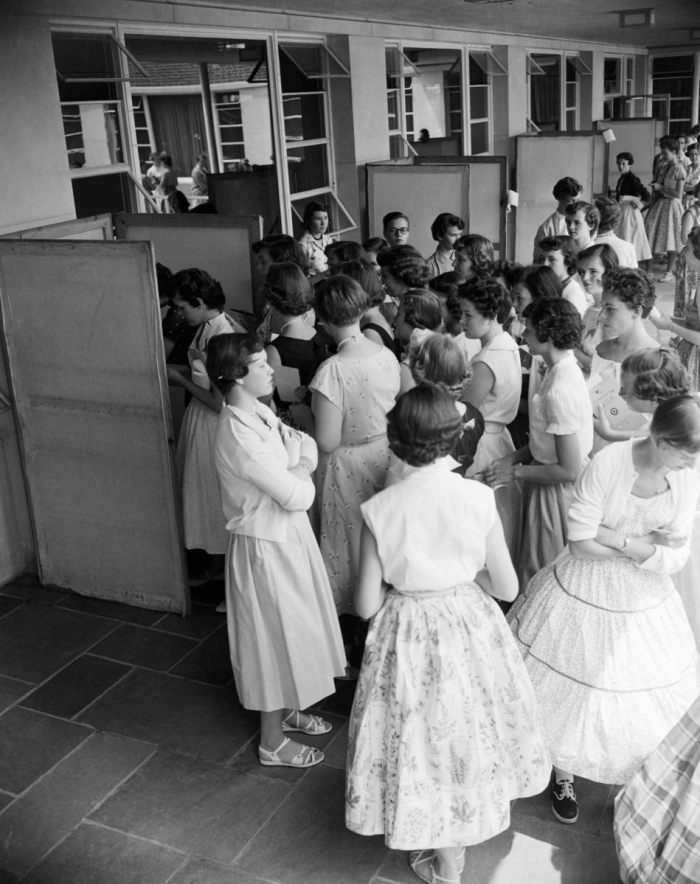
In 1690, John Locke published the Second Treatise of Government that what would become one of the most important documents in the development of American democracy and source of global political evolution, putting government in the hands of the people. In 1869, African Americans were given the right to vote. In 1919, the 19th Amendment expanded suffrage to include a large portion of the population long denied this proud opportunity – women.
And less than two days ago Barack Obama was re-elected as President of the United States, the people voted in another democrat-controlled senate, and republicans continue to hold the House of Representatives.
The people of American have spoken. Or have they?
However rough things may have started, American history seems to be one defined by the ever increasing expansion of rights to its citizens. More and more, the voiceless find themselves able to speak (metaphorically of course), and to have an impact in the direction of this nation.
But there is this one little glitch. Even though African Americans, Hispanics, non-landowners and women are all now equally able to cast their votes on a ballot, every four years millions find themselves out of the count. Oh sure, they show up to the polls, they mail in their ballots. Their votes makes a brief appearance as part of the ever-changing popular vote numbers on anxious news networks’ programs. But while their votes for state measures, representatives and senators certainly make a difference, their vote for president unfortunately does not.
Every year, so many people, both democrats and republicans, don’t make it out the polls under the premise, and rightful assessment, that their vote won’t count, that their voice won’t really be heard because of the winner-take-all system under the Electoral College. And we wonder why voter participation is so low.
If you are not familiar with this system, this is a very short and simple break down of how it works:
Basically, the individual states, not individual people, decide who gets to move into the White House. In a winner-take-all system, the entirety of a state’s electoral votes are given to the winning candidate of that state, regardless of the fact that a few thousand votes may have made the difference. The victor is the one who gets at least 270 total electoral votes. Doesn’t sound too bad, does it? It promotes states’ rights after all.
Wrong. Nearly half of a state’s individuals will be silenced because the entirety of their state’s electoral votes go to the candidate they didn’t vote for.
Who really cares? The election is over, the advertising campaigns will, thankfully, be over, and everyone can move on with their lives.
Unfortunately, they cannot . . . because our great nation, that advocates for human rights and political reforms in the rest of the world, turns a blind eye to political inequality after every presidential election. And four years later, millions of people find themselves the victims of this. According to FairVote.org, one out of twelve elections since the Civil War have resulted in a candidate taking office who won the Electoral College, but did not actually represent the will of the nation in that he did not win the popular vote. A candidate could receive less than fifty percent of the popular vote and still win the election!
So how do we solve this? How do we make sure that the nation that claims it is the great champion of liberty and democracy actually lives up its bold promises?
The National Popular Vote bill offers an alternative to the present election system. It keeps the Electoral College, but modifies it so that the popular vote is what seals the deal on the winning candidate. Results would not depend on a few thousand votes in a handful of states. Under this bill, states would still be given electoral votes, but they would not be cast according to the results of their specific populations. Rather, they would be reflective of the national popular vote.
For instance, California, regardless of that fact that is consistently a blue state, would give all of its fifty-five electoral votes to the candidate who wins the overall popular vote, even if he/she is a republican. Not even all states have to agree to this bill in order for it to take effect. Only the number of states whose combined electoral votes would equal 270 (the amount needed to win the election) would be needed for this to happen. Already, nine states have passed this bill.
The National Popular Vote offers method of ensuring fair and equal elections in the United States in comparison to the current use of the Electoral College. But regardless of whether you think this particular bill is the answer, the institution of a popularly elected president is necessary to make sure that everyone truly is able to turn their formal freedom into actual freedom, as they say in the philosophical world.
This year marked the first election I voted in, and I was darn well near tears at the opportunity to voice my opinion. But I also live in a state in which I find myself at odds with the general political consensus. Like millions of other people, I knew my vote wouldn’t make much of a difference other than on voter turn-out statistics. But I exercised my right to vote out of principle, to make a statement that I care, that I will not be silent. But next time, I don’t want myself or millions of other people to vote purely on principle. I want their vote to count. I want to be heard.
If you would like to find out more information, gain some more clarity, or address any questions you may have, check out these websites: fairvote.org, nationalpopularvote.com, and commoncause.org.
